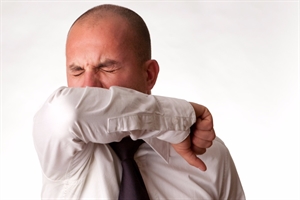Tuberculosis is one of the top ten causes of death worldwide. This bacterial infection made 10.4million people ill in 2016 and 1.7million people died from it.
What is tuberculosis?
Tuberculosis (TB) is a bacterial infection of the lungs that is treatable with antibiotics. However, strains of TB that are multi-drug resistant are appearing, and the World Health Organization describes this as a health crisis. The course of drugs used to treat TB is very long – around six months – and many patients do not comply with it. This has resulted in the appearance of multi-drug resistant strains of TB.
Where is TB most common?
Seven countries account for 64% of all cases of tuberculosis. They are:
How is tuberculosis spread?
When a person with TB coughs or sneezes they spray out respiratory droplets that are contaminated with the bacteria that causes TB. Tuberculosis is contagious, but only after several hours of exposure to an infected person.
You cannot catch TB from social activities like kissing or handshaking or sharing food and drink.
Who is at risk from TB?
If you have a condition or are undergoing treatment that weakens your immune system, then you are at increased risk from TB. WHO calls HIV and TB ‘a lethal combination’. In 2016 about 40% of deaths among HIV-positive people were from TB.
The very young and the very old are also at increased risk from tuberculosis, too, as is anyone in poor health because of substance abuse, including smoking.
TB spreads in crowded conditions, so consider your accommodation. Travellers staying with relatives or friends may be a greater risk, too, particularly if there is someone in the house with TB.
What are some tuberculosis symptoms?
The symptoms of tuberculosis include a cough that lasts more than three weeks. A long-lasting cough is a cause for concern even if you don’t think you have TB. See a doctor. And the same applies if you cough up blood.
Other TB symptoms include:
- weight loss
- poor appetite
- fatigue
- night sweats and fevers
- some patients get a swollen neck
See a doctor sooner rather than later if you think you have TB.
How can I avoid catching TB?
If you are going to be working or volunteering among people who are likely to be infected with TB (for example in a healthcare setting, a prison or a shelter for homeless people), speak with an occupational health expert to learn more about what administrative and environmental procedure should be in place to reduce exposure to TB. There is a test for TB which you may wish to request before you leave, and then you can get re-tested on your return.
There is a risk of contracting bovine TB in certain countries. If you are going to be spending a long time in a country where bovine TB is common, you need to be aware that it is possible to contract TB from unpasteurized dairy products. You can also contract it via infected animals’ respiratory droplets and dung, and from the carcasses of infected animals

